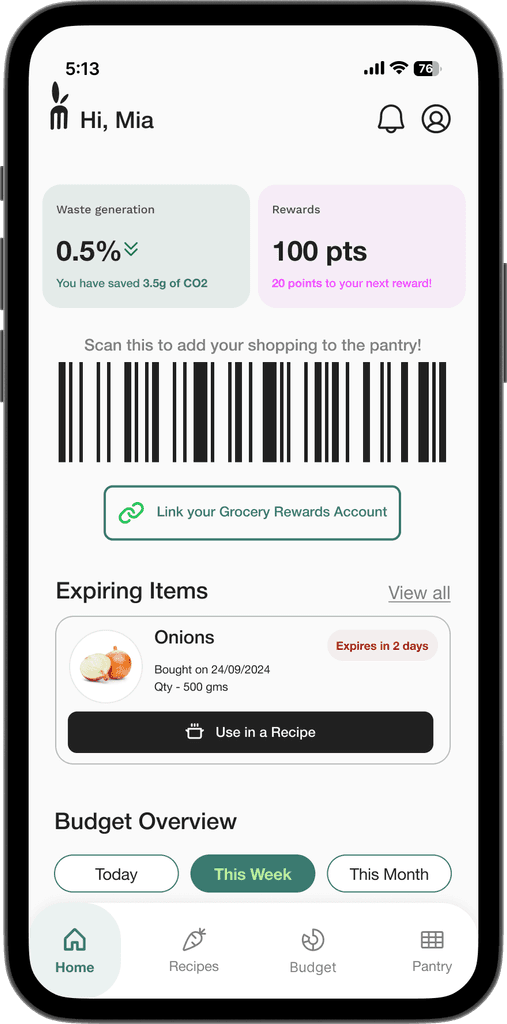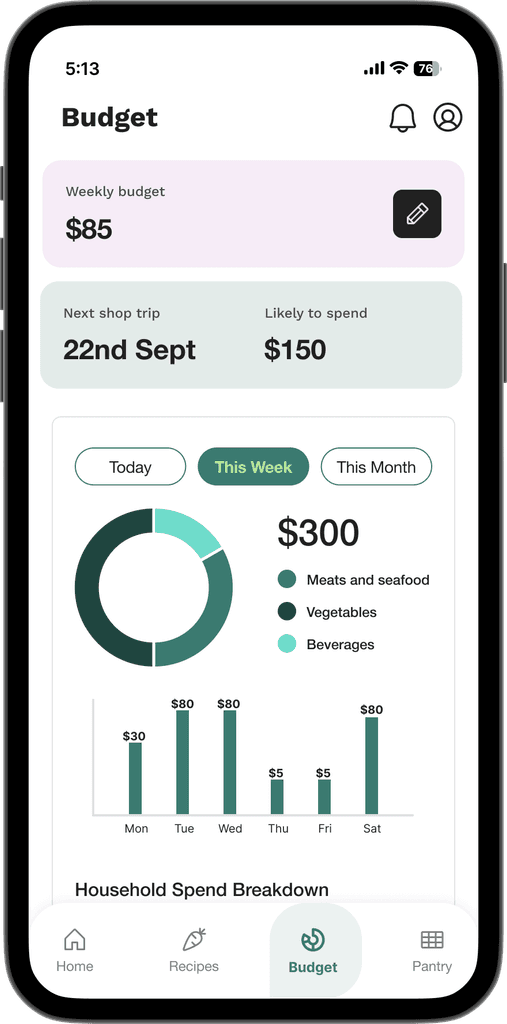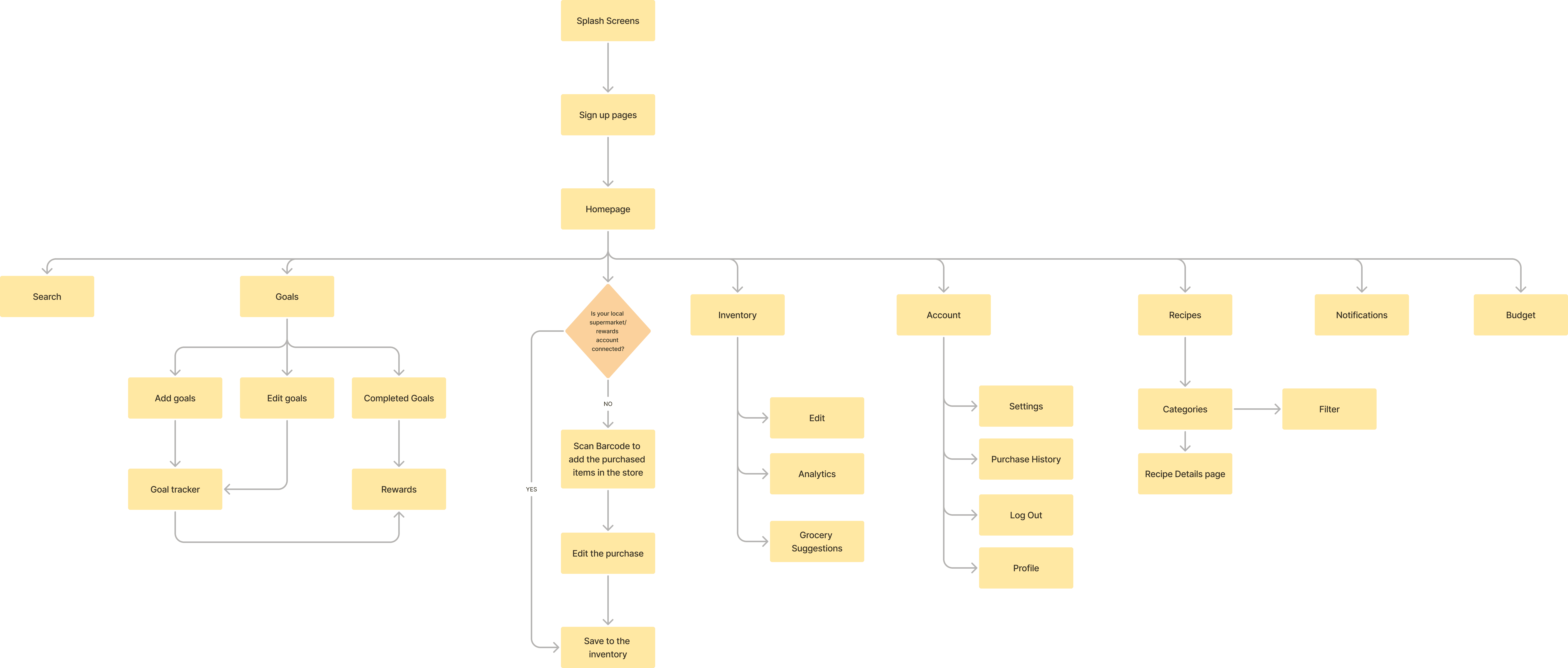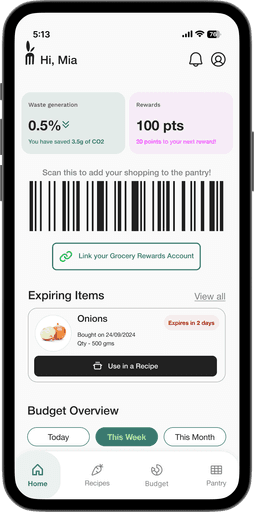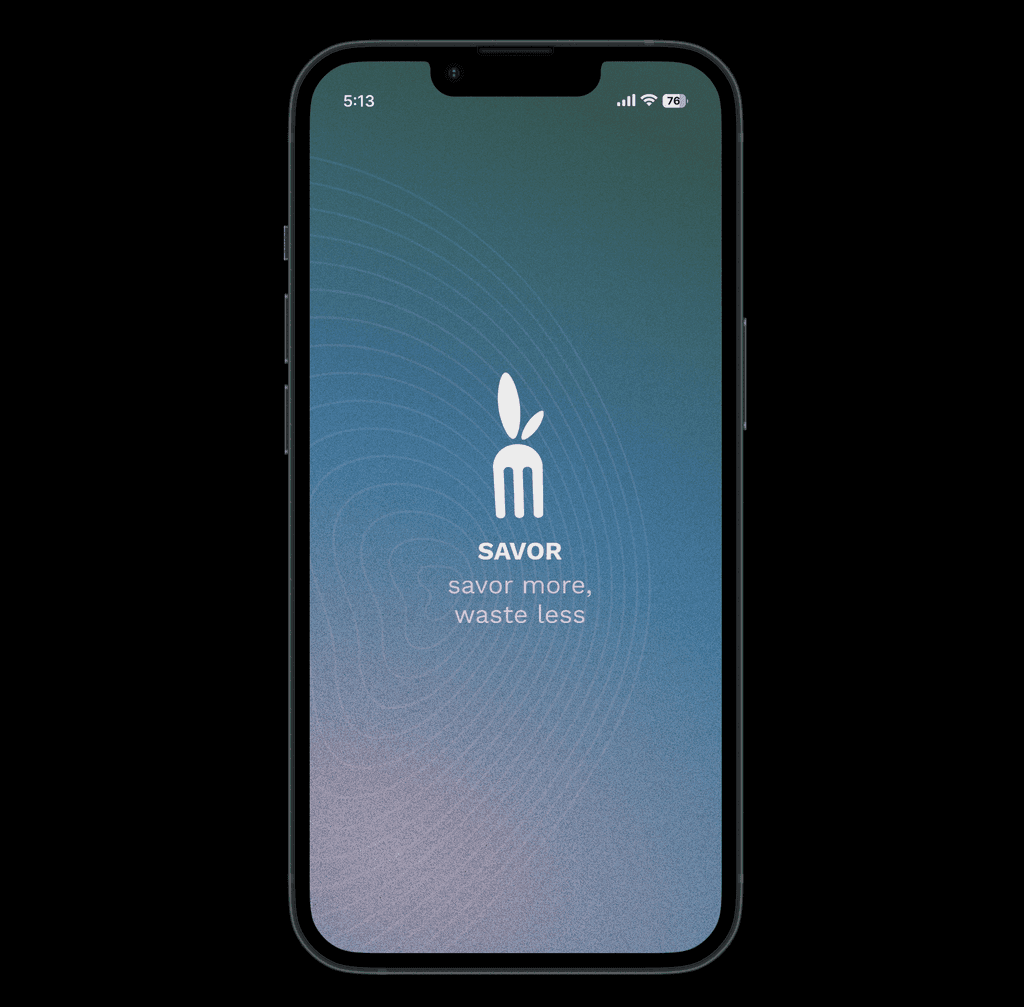Empowering mindful consumption to reduce food waste and promote sustainability.
Promoting Waste Free Consumption for Food Sustainability
Insights on consumption habits can encourage behavioural change.
Manual entry is generally discouraged and painful for users.
Users value simple, effective notifications (e.g., expiration dates, shopping reminders) from apps.
25
survey responses
5
user interviews
Behavioural change is a key factor in long term sustainability.
Bulk purchases without proper planning and tracking often leads to food waste.
Need for simplified inventory tools that track food expiration dates, helping them make informed shopping decisions.
How Might We help households reduce food waste by addressing overbuying and poor meal planning, to save money and reduce environmental impact through a digital solution?
The User Flow Diagram offers a clear overview of the synthesised ideas developed throughout the ideation phase. It visually maps the user’s journey, illustrating each step from initial engagement through to interacting with the various features in the app.
Summary of Shortlisted Features
Highly user-driven, Savor is designed around real user needs and everyday behaviours to make sustainable choices accessible and intuitive. By focusing on user convenience and engagement, the solution empowers individuals to take control of their consumption habits effortlessly.
The digital solution promotes lasting behavioural change by encouraging mindful consumption through pantry tracking, recipe suggestions, and budgeting tools. This fosters sustainable habits, helping users integrate eco-friendly choices into their routines and reduce food waste long-term.
Aligning with the 2030 SDG agenda for sustainability, our developed solution closely aligns with Goal 12 " Responsible Consumption and Production".
If widely adopted, Savor could drive meaningful change in the food waste landscape, helping individuals and communities to make sustainable choices effortlessly. The potential impact is significant: by minimising waste and promoting resourceful consumption, Savor contributes to a circular economy where every product is used to its fullest potential, ultimately reducing the environmental strain on our planet.
Reflecting on the design process for Savor, this project offered a rewarding challenge, pushing us to address the design brief effectively within a tight timeframe. With guidance from a single QA session with mentors, we leaned into collaboration and rapid iteration to bring our concept to life. Although we achieved a solid outcome, additional feedback sessions could have provided further insights to refine our approach.
Our user testing focused on qualitative methods like Think Aloud sessions and open-ended questions, to understand user behaviours and expectations. Ethical considerations also played a crucial role, especially regarding partnerships with grocery stores. Transparency around data privacy and user consent, alongside avoiding incentives that could lead to overconsumption, would be essential to maintain user trust and support sustainable habits.
Working under significant time constraints taught me the importance of prioritisation and leveraging existing knowledge when designing under pressure. This experience helped me strengthen skills in fast prototyping, priority indexing, and effective collaboration within a diverse team.
